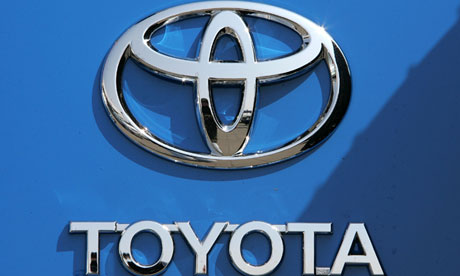CNBC's Phil LeBeau has the details on the automaker's massive recall of malfunctioning power window switches.
It should have been a good day for Toyota. With sales surging after last year’s dismal decline, the automaker expected to get word that its owner loyalty rate was the highest in the industry for the first time since 2009.But even as consulting firm Experian Automotive prepared to release the new owner loyalty data, Toyota had an announcement of its own: a new recall involving 7.5 million vehicles due to a potential fire risk. Not so coincidentally, 2009 was the year Toyota got embroiled in the embarrassing unintended acceleration scandal that, along with other safety-related issues, ultimately forced it to recall about 14 million vehicles.
Related: Toyota recalls 7.5 million vehicles
The new recall, which includes 2.5 million Toyota and Scion brand cars, trucks and crossovers sold in the U.S., could prove another embarrassing setback for the Japanese giant after an aggressive effort to rebuild its brand image that is clearly paying off with double-digit sales gains in the U.S.
The announcement comes as Toyota confronts another potentially serious setback. With many Chinese consumers boycotting Japanese products due to the dispute over ownership of a chain of islands in the East China Sea, Toyota is temporarily cutting by half production in what is now the world’s largest car market.
How much the latest recall will affect the perception of the Toyota brand remains to be seen. It is clearly an embarrassment, industry analysts agree, covering more vehicles than any other single global recall since the 2009–10 actions related to Toyota’s sudden acceleration problems.
To that extent, it rises above the steady drumbeat of recall headlines that has, in recent months, hit just about every automaker from Chevrolet to Ferrari, .said Rebecca Lindland, chief auto analyst with IHS Automotive.
“Toyota has a very loyal owner base, and this (latest recall) isn’t going to sway them,” said Lindland. “But for those people on the fence about buying a Toyota, this will have an impact. It could be more difficult getting new buyers into the showroom.”
Loyal buyers have fueled the double-digit upsurge in Toyota sales during the first nine months of 2012. For September, demand for products sold by the maker’s three U.S. brands jumped 41.5 percent.
Toyota loyalists
A large chunk of that business came from Toyota loyalists, many of whom waited it out during the product shortages of 2011 caused by the March earthquake and tsunami that nearly shut the Japanese auto industry down.
But with an industry-leading loyalty rate of 47.3 percent, according to Experian, Toyota still has to keep its showrooms filled with new customers. And that’s where the situation could get dicey with Toyota’s safety record again in the spotlight, said Art Spinella of CNW Marketing.
It wasn’t supposed to happen this way, at least not according to Toyota CEO Akio Toyoda. Aggressively grilled by a congressional committee in 2010, the grandson of Toyota’s founder promised to redouble the maker’s efforts to control quality and change a corporate culture critics said long tried to mask safety problems.
The latest recall impacts a variety of different models produced before the unintended acceleration scandal broke. And the new safety campaign underscores a challenge all manufacturers face as they try to boost manufacturing economies of scale by sharing components -- in this case a defective power window switch -- across a wide range of products.
Nonetheless, “This could chip away at the number of people who would consider buying a Toyota vehicle,” Spinella warns.
Ironically, if Toyota does take an image hit it may not benefit its archrival Honda. Though import buyers frequently cross-shop the two brands, Honda has its own safety-related problems. The smaller maker announced three separate recalls affecting 1.7 million vehicles last week alone. The National Highway Traffic Safety Administration revealed a new investigation that could lead to the recall of 600,000 more Honda products.
As a result of the unintended acceleration problem and other issues, such as excess corrosion of its minivans, Toyota had more vehicles recalled than any other maker in the U.S. market in 2010. Due to a late-December service campaign, Honda snatched that dubious distinction away from its rival last year. Now it’s a toss-up as to which of the two might land at the top -- or the bottom, if you prefer -- of that list for 2012.
The latest Japanese recalls could prove good news for Hyundai and Ford, the vehicles most commonly cross-shopped with the Japanese leaders, Spinella said.
But those who expect a sudden collapse in Toyota sales are likely to be proved wrong, said Lindland. “They’re going to do everything in the power to offset the impact," she said, predicting that Toyota will roll out hefty marketing efforts and whatever incentives are needed.
Nonetheless, if Toyota’s quality and safety image continues to be tarnished, observers warned, it could steadily erode its ability to win over new buyers to replace older customers who might no longer be in the new car market


No comments:
Post a Comment